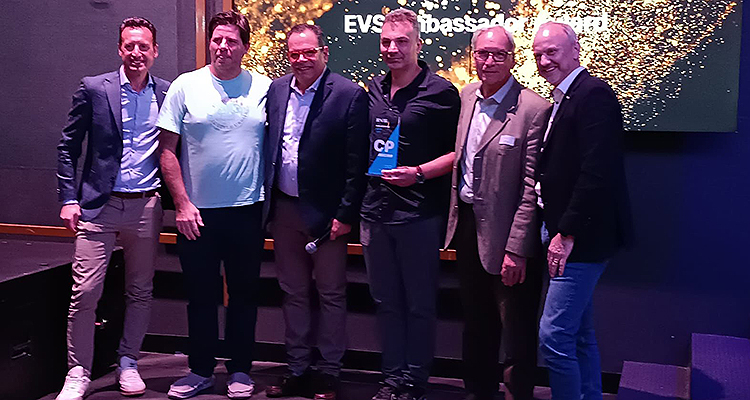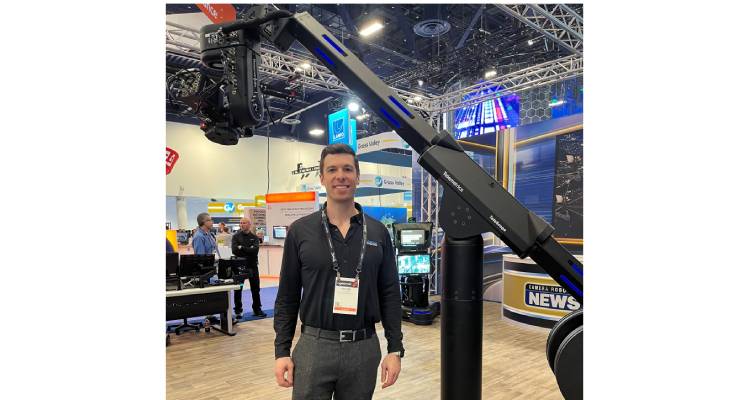The television industry continues to reinvent itself to adapt to the restrictions: no livetrade shows, trips, or face-to-face meetings. But, «the show must go on.»
The pandemic happened all over the world, within a few weeks, due to technology, and especially travel and tourismtechnology, which spread it in an irresistible way, everywhere.
The paradox is that, to fight it first and try to bring it down later, technology was also used, developing, in a comparatively short time, a number of vaccines that, over time, will mitigate pandemics and make it possible to return to practices that, such as travel and tourism, passed from being a common habit until 2019 into dangerous practice from the beginning of 2020 until we still do not know exactly when, perhaps 2023.
With the disappearance of travel, due to infections and the transmission of new strains of Covid-19 that they distribute, mass meetings disappeared –at least for some time–, including the NAB showheld by the National Association of Broadcasters, which convened in Las Vegas to about 91,000 people over seven to ten days, or IBC in Amsterdam, or television programming venues such as NATPE in Miami, MIPTV and Mipcom in Cannes, as well as a dozen similar meetings in cities from Singapore in Asia to Mexico City and Buenos Aires in Latin America.
The media industry, faced with this new and very serious situation that affects its operation and perhaps its existence, reacted with speed –and fear– byspeeding up the implementation of technologies that already existed, such as remote audiovisual meetings. These became essential to keep content production and distribution companies running, despite the impossibility or inconvenience of continuing with the traditional practices of face-to-face human encounters to learn about news, reduce errors, improve what is being tested and, very importantly, avoid or minimize errors.
This need produced a notable advance in communication technologies, with the explosive expansion of technologies such as Zoom, the massification of Webinars to a level of globalization limited only by languages, and the adaptation of the technologies of production, processing and transmission of content for radio and television to the new circumstances. This has “globalized” the activity at a rate never seen before: a technician can participate, on the same day or week, at various virtual meetings in different countries of the world, with suppliers, clients or experts that it would have been impossible to contact in such a way until early 2020.
The result is that today the media and audiovisual content industry, previously thought of as broadcast radio and television, and in the recent past in terms of connectivity and individual and mobile access to the Internet and social networks, has changed dramatically. Media such as graphic publications, typical of the face-to-face way of life, have disappeared or reduced their reach; WhatsApp destroyed long distance telephony, Streaming is affecting linear radio and television in many parts of the world. “Short wave»radio, which reached distant countries half a century ago, has been replaced by online transmission.
The question that many are asking is: ‘Once the pandemic is resolved or limited, will we return to the previous order? The answer is ambiguous: ‘yes and no’. Much of what has happened and developed is here to stay. Yes, the industry will return to collective meetings for the showcasing of technological and cultural innovations:But, it will not be the same. Attending them will remainan option, because the communication assets developed during this crisis are not going to disappear or stop being used. There will be fewer meetings per Zoom, but they won’t go away. Nobody knows exactly what it will be like, but there will be a different “balance” between the face-to-face and the remote. And there will be an avalanche of technical novelties, a new way of doing most things, based on what was learned during the pandemic.
When Chinese culture speaks of ‘living an interesting future’, it does not imply that this future will be pleasant. It applies to expecting disruption. Here, ‘interesting’ means ‘different, with changes’ and assumes that the person is willing to be interested in the changes. But, it also implies that those changes are going to happen, whether that person likes it or not. Now, it depends on each one of us to continue belonging to the radio, television and communications industry as it will turn to be in the future, instead of remaining in collective memory as something that has beenbut is no longer so. There will be a new balance.Yet, technological and psychological trends are irreversible and each of us will have to adapt to the changes that will be consolidated in the future, in order not to become obsolete.
Versión Español
Un año muy “interesante”, en el sentido chino de la palabra
La industria de la televisión se sigue reinventando para adaptarse a las restricciones: sin convenciones, ni viajes, ni reuniones presenciales, ‘el show debe continuar’.
Y ocurrió en todo el mundo, con pocas semanas de diferencia, gracias a la tecnología, y en especial la tecnología de los viajes y el turismo, que la expandió en forma digamos irresistible, por todas partes. La paradoja es que, para atenuarla primero y combatirlo después, también se recurrió a la tecnología, desarrollando, en comparativamente muy poco tiempo, una cantidad de vacunas que, con el tiempo, atenuarán las pandemia y harán posible el regreso a prácticas que, como los viajes y el turismo, pasaron se ser hábito corriente hasta 2019 en práctica peligrosa desde principios de 2020 hasta todavía no sabemos exactamente cuándo, tal vez 2023.
Con la desaparición de los viajes, por los contagios y la transmisión de nuevas cepas de Covid-19 que fomentan, desaparecieron –en principio en forma transitoria- las reuniones multitudinarias, entre ellas la NAB de la National Association of Broadcasters, que convocaba en Las Vegas a cerca de 120.000 personas a lo largo de siete a diez días, o IBC en Amsterdam, o las de programación para televisión como NATPE en Miami, MIPTV y Mipcom en Cannes, y una decena de encuentros similares en ciudades desde Singapur en Asia hasta la Ciudad de México y Buenos Aires en América Latina.
La industria de los medios de comunicación, ante esta nueva y gravísima situación que afecta su operación y tal vez su existencia, reaccionó con velocidad -y temor- y aceleró la implementación de tecnologías que ya existían, como las reuniones audiovisuales a distancia, pero que se hicieron indispensables para mantener a las empresas productoras y distribuidoras de contenidos en funcionamiento, pese a la imposibilidad o inconveniencia de seguir con las prácticas tradicionales de encuentros humanos presenciales para conocer las novedades, reducir los errores, mejorar lo que se está ensayando y, muy importante, evitar o minimizar los errores.
Esta necesidad produjo un notable avance en las tecnologías de comunicación, con la explosiva popularización de tecnologías como Zoom, la masificación de los Webinars hasta un nivel de globalización limitado sólo por los idiomas, y la adaptación de las tecnologías de producción, procesamiento y transmisión de contenidos para radio y televisión a las nuevas circunstancias. Esto ha “globalizado” la actividad a un ritmo nunca visto antes: un técnico puede participar, en el mismo día o semana, en diversas reuniones virtuales en distintos países del mundo, con proveedores, clientes o expertos que hubiera sido imposible contactar en forma masiva hasta principios de 2020.
El resultado es que hoy la industria de los medios y contenidos audiovisuales, antes pensada como radio y televisión masivas, y desde hace pocos años en términos de conectividad y acceso individual y móvil a Internet y las redes sociales, ha cambiado dramáticamente. Medios como las publicaciones gráficas, típicas del modo de vida presencial, han desaparecido o reducido su alcance; WhatsApp destruyó a la telefonía de larga distancia, el Streaming está afectando a la radio y televisión lineales en muchas partes del mundo. La “onda corta” radial, que hace medio siglo comunicaba con señales de alcance mundial con países lejanos, ha sido reemplazada por las transmisiones online.
La pregunta que muchos se hacen es: ‘Una vez resuelta o limitada la pandemia, ¿Volveremos al orden anterior?. La respuesta es ambigua: ‘sí y no’. Mucho de lo desarrollado y sucedido está para quedarse. Se volverá, sí, a las reuniones colectivas para la presentación de novedades tecnológicas y culturales, pero no será lo mismo. Concurrir a ellas será optativo, porque los elementos de comunicación a distancia desarrollados en esta crisis no van a desaparecer ni dejar de ser usados. Habrá menos reuniones por Zoom, pero no desaparecerán. Nadie sabe cómo será exactamente, pero habrá un “equilibrio” diferente entre lo presencial y lo remoto. Y habrá un alud de novedades técnicas, una nueva manera de realizar la mayoría de las cosas, a partir de lo aprendido durante la pandemia.
Cuando la cultura china habla de ‘que te toque vivir un futuro interesante’, no implica que ese futuro sea agradable. Aquí, ‘interesante’ significa ‘distinto, con cambios’ e implica que la persona está dispuesta a interesarse en los cambios. Pero, también implica que esos cambios van a suceder, le guste a esa persona o no. De cada uno de nosotros depende ahora seguir perteneciendo a la industria de las radio, la televisión y las comunicaciones, y de no quedar en el recuerdo como algo que fue y ya no lo es más. Habrá un nuevo equilibrio, pero las tendencias tecnológicas y psicológicas son irreversibles y cada uno de nosotros deberá adaptarse a los cambios que se consoliden a futuro, para no quedar obsoletos.




